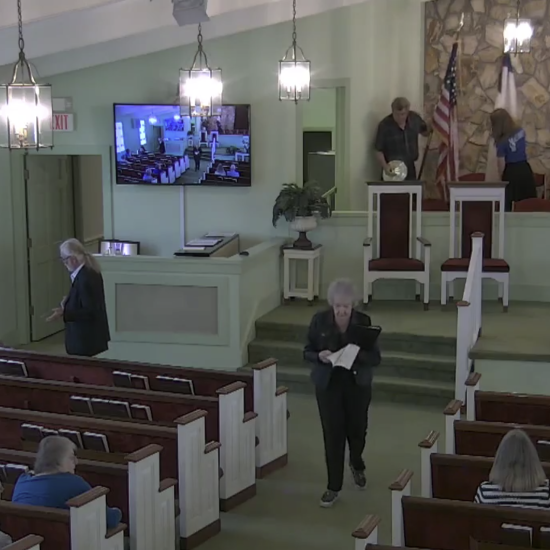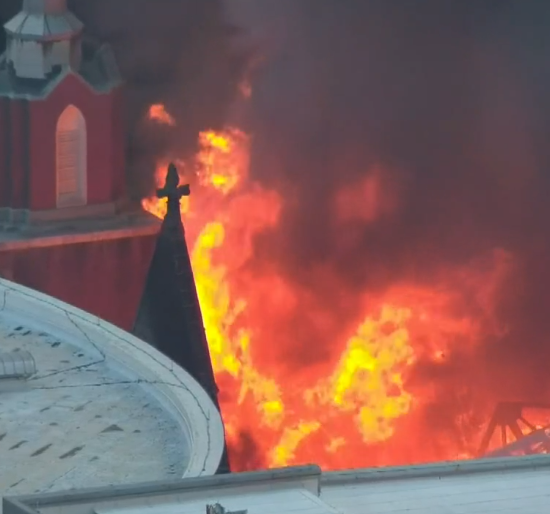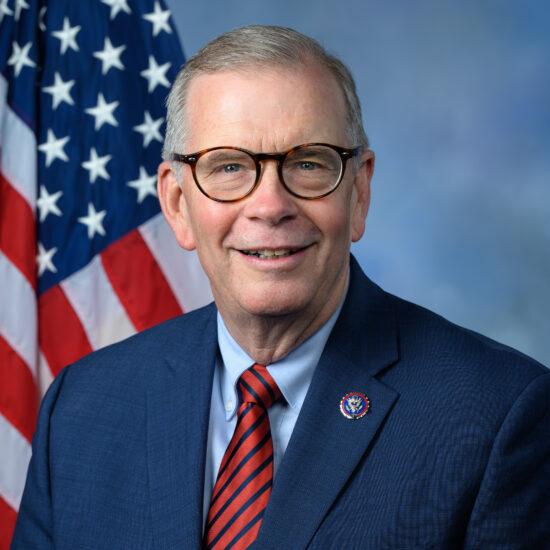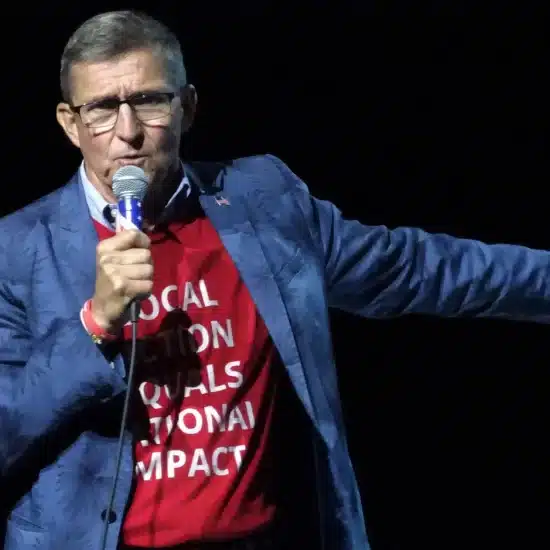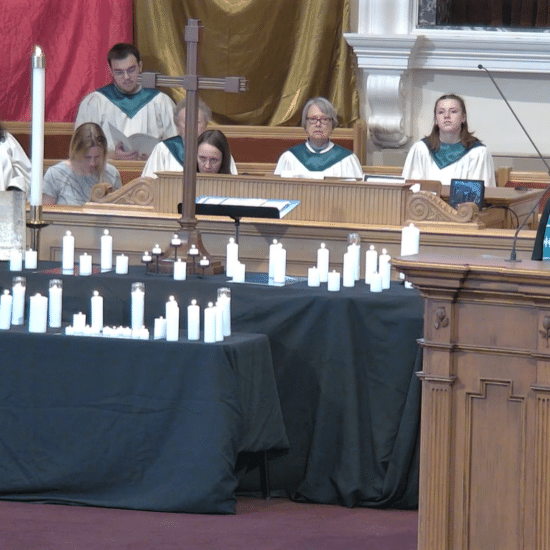A group of Baptists from Missouri recently visited Cuba to learn about Baptists in that island nation. Eight Missourians joined four other Baptists last month to bridge religious, political and cultural divides between the two countries.
José Aurelio Paz, one of the Cuban Baptist hosts for the trip, explained that when U.S. Christians visit Cuba or Cuban Christians visit the U.S., they are “building bridges of understanding, love, and solidarity.”

Downtown Havana, Cuba
|
Ned Walsh, a former Missouri Baptist minister who lives in North Carolina, organized the trip. Walsh, who has traveled to Cuba regularly over the past 25 years, spoke at the annual gathering of Churchnet in April to urge participation.
Leaders of Churchnet joined the delegation, including Vice President Forestal Lawton, Missions Mobilization Team Leader Gary Snowden and Editorial Assistant Brian Kaylor. Four individuals from Kirkwood Baptist Church, Kirkwood, Mo., which has partnered with a church in Cuba for two decades, participated in the trip: Bob Starkey, Pat Tajkowski and Mira and Sasha Zivanov. Thelma Congleton, from Sparta, Mo., also went.
Joining them were Loretta Woodson from Texas, and Craig Henry and D.H. Clark, members of Northminster Church in Monrú, La., which has had a two-decade partnership with a Cuban Baptist church. Of the group, only Walsh, Tajkowski, Henry and Clark had previously visited Cuba.
“I love going to Cuba,” said Tajkowski, who has made numerous visits over the past two decades. “I love it because of the passion of the people. Where one might expect to find downtrodden, oppressed people, I find hopeful, loving people. It is good to find people who are on fire for spreading the word of God and the redemption of Christ. I wish I could be infected with that!”
The U.S. delegation attended the 40th anniversary of the Coordinación Obrero-Estudiantil Bautista de Cuba (Coordination of Baptist Workers and Students in Cuba), or COEBAC. More than 80 Cuban Baptists gathered at Iglesia Bautista Emmanuel (Emmanuel Baptist Church) in Ciego de Ávila in the middle of the island for the celebration Oct. 10-11.

Forestal Lawton
|
Representatives from the Baptist Convention of Eastern Cuba and the Fraternity of Baptist Churches in Cuba gathered for the anniversary, which also was an effort to revive the organization after years of inaction. A group of Swedish Baptists attended the founding meeting. The presence of the U.S. Baptists (two of whom are originally from Bosnia and Serbia) continued the international engagement.
“The trip to Cuba to participate in the 40th anniversary of COEBAC was a great opportunity to meet our Cuban Baptists brothers and sisters,” said Lawton, a member of Metropolitan Missionary Baptist Church in Kansas City. “The opportunity to meet founders of COEBAC and listen to the history of their struggle was a rare opportunity.”
“COEBAC was born in very difficult times when the church maybe lost sight of how to be salt and light,” Gonzalez said. “The fullness of [the church’s] calling is to be prophetic in the place where it’s been called.”
Uxmal Livio Diaz Rodriguez, the first general secretary of COEBAC, said that the organization sought to encourage “active participation in the life of the nation” and fulfill the “social responsibility that God calls Christians to.”
Noting Cuba’s move toward atheistic socialism as a response of the failed U.S.-backed Bay of Pigs invasion, Diaz said a “dark layer covered the Cuban Baptists and also other churches.” Yet, he recounted “some sparks the Baptists were able to do during this time.”
In spite of everything, “we did contribute some to culture because Baptists follow three very important commitments: presence, participation and persistence,” Diaz added. “Our Cuban roots should lead us to a very deep testimony in our land because of the Lordship of Christ in the world and in Cuba.”
Diaz and others also spoke of the rich Baptist history in Cuba, particularly noting Frank País. The son of a Baptist pastor, País was one of the leaders of the “26th of July Movement” along with Fidel Castro. Executed in 1957 at the age of 22, Pais’ death sparked a massive protest that energized the movement. Diaz, who knew País, added that Baptists “contributed many martyrs” to the revolutionary effort that helped end “years of darkness.”
The COEBAC meeting focused on Baptist principles in light of the historical and cultural Cuban context. The discussions centered around five key Baptist principles: separation of church and state, freedom of conscience, autonomy of the local church, Lordship of Jesus Christ and authority of the Bible. Raúl Suárez, longtime Baptist leader in Cuba and member of the National Assembly of People’s Power (Cuba’s national parliament), epitomized the discussions as he incorporated Cuban history and culture with historic Baptist ideas. Speaking about the separation of church and state, Suárez traced the importance of the principle throughout the world and then connected it to the Cuban context.
“There is a temptation for both church and state to meddle in the other,” he argued. “The greatest sin of the church throughout history has been uniting itself with the state.”
Connecting the principle to Cuba, Suárez said it “hurts me” that when the Spanish conquers arrived on the island “they came with the cross and the sword.” More recently, Cuba increased religious freedoms in 1992 by no longer requiring public officials to be atheists, which led Suárez to start serving in the national parliament the following year.
Two Missourians were on the COEBAC program. Lawton spoke during a plenary session about the importance of Baptist principles, focusing on the autonomy of the local church and the authority of scripture. Snowden led the breakout session on freedom of conscience.
“Being able to discuss such topics in an open forum in Cuba was perhaps one of the biggest surprises of the trip for me,” reflected Snowden, who serves as associate pastor at First Baptist Church of Lee’s Summit.
“One of the lasting impressions I took away from the trip was the strong commitment of Cuban Baptists to reach their island nation for Christ with the gospel, while at the same time striving to improve the overall living conditions of their people,” Snowden added. “We heard a lot of concern for justice and economic issues as well as a healthy interest in caring for the world that God has given us as good stewards of it. These same Baptists also expressed a pronounced pride in their country and displayed patriotic fervor.”
As Baptists in the U.S. started working in Cuba over a century ago, Northern and Southern Baptists split the island among themselves. Historically, the Baptist Convention of Eastern Cuba worked with the Northern Baptist Convention (now Ameri?can Baptist Churches USA) and the Baptist Convention of Western Cuba worked with the Southern Baptist Convention.
In the 1960s, the Cuban government expelled U.S. missionaries, including two Southern Baptist missionaries the government first imprisoned. Cuban Baptists at the meeting lamented the territorial split that U.S. Baptists introduced in Cuba — a division that remains to this day. Baptists on each side of the island grew to resemble the U.S. convention with whom they partnered. Eastern Baptists (related to American Baptists)participated in the COEBAC meeting but Western Baptists (aligned with Southern Baptists) pulled out to protest one of the speakers.
“This imposed division began developing two mindsets in Cuba,” explained Ramona Matos, pastor of Iglesia Bautista Canaan (Canaan Baptist Church) in Bolivia, Cuba.
The Americans also visited Western Cuban Baptist Seminary in Havana, the office of the Cuban Council of Churches in Havana and a Baptist Church in Pinar del Río.
Brian Kaylor is Churchnet’s communications and engagement team leader.

